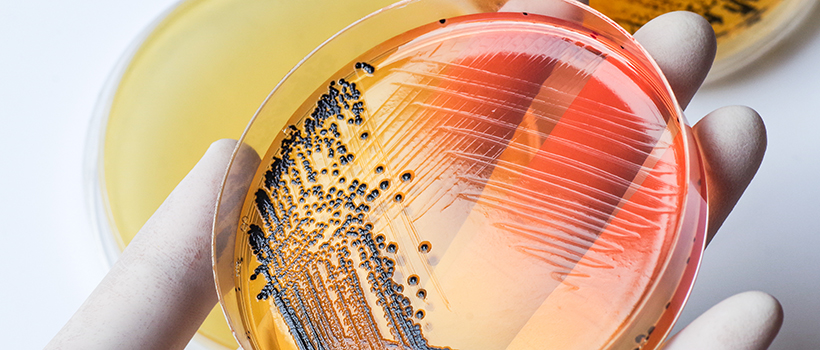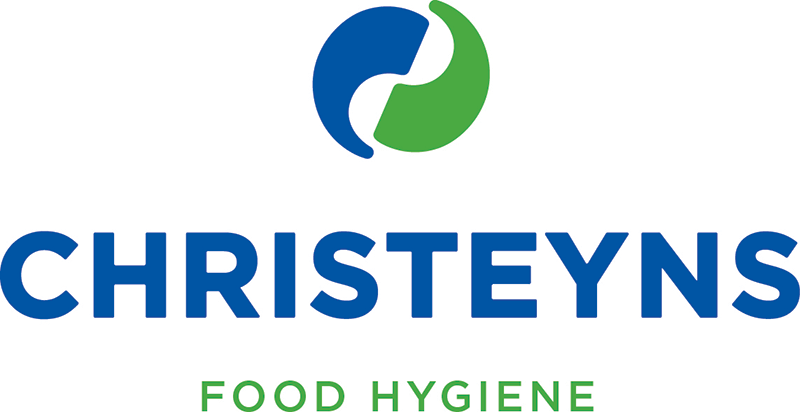
Molecular microbiology
11 July 2024
Member: £130 + VAT / Non-member: £180 + VAT
Group discounts available on request. Contact Training
Summary
Molecular microbiology methods are needed to ensure that food is safe, with the most common use being to detect pathogens. But there is so much more.
DNA sequencing allows detected pathogens to be compared to each other with greater accuracy than ever before. It also provides tools to examine microbial populations in great detail, so that these can be understood and controlled.
Sequencing is maturing as a tool for use in food microbiology, particularly for tracking the source of outbreaks and for examining gut microflora.
By covering comparative genomics, population profiling and ISO 16140 validation of methods, this seminar is the ideal opportunity to develop and update your knowledge of molecular microbiology, so that you can best use it to ensure the safety of your products.
Who should attend
Food Microbiologists, Food Analysts, Technical Managers, Hygiene Specialists
Event Director
Fiona Cawkell
Exhibiting
Provisional programme
| Time | Presentation |
|---|---|
| 08:45 | Registration and arrival refreshments |
| 09:10 | Welcome and Chairman's introduction Prof Cath Rees, University of Nottingham |
| 09:25 | Is your method fit for purpose: ISO 16140 Validation and verification of Molecular-based Alternative Methods Suzanne Jordan, Campden BRI Today’s food microbiologist can select from many commercially available molecular based methods, each with their own benefits and drawbacks. Many ‘off the shelf’ solutions have validations carried out by external bodies following standardised procedures. This presentation summarises the importance of method validation and verification and discusses their role in establishing fitness for purpose. |
| 10:05 | The use of comparative genomics Anaïs Painset, UKHSA New technology has been more and more used to characterise bacteria to a very fine level. With advance in Whole Genome Sequencing and its democratisation, genomics allowed us to profile bacteria in a very detailed manner. Comparing genomics of different strains give us information on relatedness between strains for surveillance and outbreak detection, anti-microbial resistance, and other genomics markers. Anaïs is presenting, how UKHSA (ex-PHE) has embraced genomics to improve our public health microbiology knowledge or foodborne pathogens. |
| 10:45 | Refreshment break and opportunity to visit the exhibits |
| 11:05 | Molecular microbiology and how it benefits the food industry Prof Cath Rees, University of Nottingham |
| 11:45 | Hot news! An update on our sponsor’s products |
| 12:15 | Lunch and opportunity to view the exhibits |
| 13:20 | Unlocking microbial mysteries: application of Rep-PCR in identification of probiotic lactic acid bacteria Dr Hamid Ghoddusi, London Met University The application of Rep-PCR holds promise for advancing our understanding of microbial communities found in food, feed and both human and animal microbiota. Within the realm of probiotic bacteria, it facilitates the process of identifying strains with potential health-promoting traits and probiotic characteristics. This overview serves as a case study, delving into Rep-PCR's transformative role in unravelling the enigmatic aspects of probiotic lactic acid bacteria. Through this exploration, it sets the stage for improved development of probiotic products and their application in therapeutic contexts. |
| 14:00 | How Applied Molecular Mycology can help the food industry Dr Carol Verheecke-Vaessen, Cranfield University A mycotoxin case study – I will focus my talk on how Molecular Mycology has help the Applied Mycology Group to support the industry regarding the mycotoxins challenges and how the new Magan Centre of Applied Mycology will be a wonderful opportunity to speed-up the research needed to further support the reduction of food waste due to mycotoxins challenges. |
| 14:40 | Refreshment break and opportunity to visit the exhibits |
| 14:55 | 16S rRNA Metabarcoding: Insights into meat production compared to traditional culture-based microbiology Jack Alderton, Campden BRI An overview from Jack which will introduce an upcoming method within the industry, 16S rRNA metabarcoding and how it has been used to provide additional data in shelf life studies. The data will be explored to show how the effects of certain external variables can impact product characteristics, such as the maturation lengths of meat products. The session will also include an evaluation of how 16S rRNA metabarcoding fits within the analytical toolbox of food and drink microbiology and potential avenues forward. |
| 15:25 | Q&A and Chairperson’s closing comments |
Speakers
Prof Cath Rees, University of Nottingham
Prof Cath Rees is Professor of Microbiology in School of Biosciences, at the Nottingham University, Sutton Bonington Campus. Originally, she studied Biochemistry at Oxford, followed by PhD in Bacterial Genetics at Leicester University and has a research focus on applying molecular techniques to the study of applied microbiology, with specific interest in the study of Listeria and Mycobacteria in food and agricultural systems.
Recent research has resulted in the development of rapid, phage-based tests (Actiphage) for the detection of mycobacterial pathogens including M. tuberculosis in humans and M. paratuberculosis and M. bovis in animals. This led to the establishment of PBD Biotech Ltd, where she was CSO until 2022, which was awarded The Royal Dairy Innovation Award for R&D in the field of dairy farming (2019) and the British Veterinary Association Innovation Award (2021). Since stepping down from her role in the company, she has joined the Government Advisory Committee on the Microbial Safety of Food and has become a Trustee of Applied Microbiology International. In 2024, her work in the area of applied microbiology was recognised by the award of the Translational Microbiology Prize by the Society for Microbiology.
Suzanne has worked here at Campden BRI since 2005, following nine years of PhD and postdoctoral research experience in food microbiology and molecular biology of food microorganisms.
Suzanne is the lead for third party microbiological method validation studies for AOAC, MicroVal and NordVal, is a Retailer-approved Method Review Co-ordinator, and is involved in several research and contract projects for developing and evaluating new methodology. Alongside this, she is an industrial PhD supervisor for a project on the of fine-tuning dietary fibre to target gut microbiota accessibility.
During her career to date she has participated in multidisciplinary research projects involving European partners, developed expertise in a range of molecular techniques, and presented her research at an international level and in peer-reviewed journals.
Anaïs Painset, UKHSA
Anaïs Painset is working for the UK Health Security Agency (previously known as Public Health England). She is the Lead Bioinformatician for gastrointestinal pathogens within Gastro Bacterial Reference Unit at UKHSA. Since joining the organisation in 2015, she was part of the implementation of the WGS pipelines for gastrointestinal pathogens. She has expertise in analysing WGS data to support pathogen surveillance, inform outbreak investigation in association with phylogeny. Her interest are on phylogenomic and gene profiling (genotypic AMR, virulence).
Dr Hamid Ghoddusi, London Metropolitan University
Dr Hamid Ghoddusi is a Reader (Associate Professor) in food and microbial science at London Metropolitan University, with over 20 years of experience in academia and food industry. He holds a PhD degree in food science (microbiology) from Reading University, MSc in food science / microbiology and a BSc in food science and technology. He is currently the Head of Microbiology Research Unit (MRU) and has been the Director of the postgraduate programs in food science for 8 years. Dr Ghoddusi has been a member of Advisory Committee on Novel Foods and Processes (ACNFP) of Food Standards Agency (FSA) since July 2016, as the gut microbiologist and food safety advisor.
Dr Carol Verheecke-Vaessen, Cranfield University
Dr Verheecke-Vaessen obtained her PhD in mycotoxin-related research in 2014 and was awarded the best innovative PhD by the Federal
University of Toulouse (France - 2015). Prior to her PhD, she had industrial experience including the development of Decision Support
Systems for post-harvest management of stored cereals and liaison coordinator with food chain transformers. She then worked for two years
as a temporary research and teaching attaché at the Ecole National Supérieur Agronomique de Toulouse (France) prior to joining the
Applied Mycology group at Cranfield University in 2016.
Since joining Cranfield, Carol has developed her own research vision focusing on a deeper understanding of the mechanisms underpinning
fungal secondary metabolites (including mycotoxins) production with a specific focus on how environmental factors, including climate
change, trigger these mechanisms. Since 2016, she has been involved in several teaching and research projects (for e.g.: Oats for the
future, NutriNuts, Gender-equal mycotoxin training) to improve the full supply chain management of mycotoxin.
Carol has published more than 40 peer-reviewed journals research papers and 4 book chapters. In 2021, Carol obtained a Postgraduate
Certificate in Academic Practice from Cranfield University and became the Director of Mycotoxin Training Hub developing tailored training
and research opportunities to tackle specific mycotoxin challenges faced by the agrifood industry in the UK and worldwide.
Jack Alderton, Campden BRI
Jack joined Campden BRI in 2019 as a molecular biology technician for the microbiology safety and spoilage team after completing a BSc in cellular and molecular medicine from the University of Bristol and a Masters’ in E. coli infection mechanisms from Cardiff University.
Jack is currently working in the Emerging Microbiology Group as one of our microbiologists, exploring various new and exciting food and drink topics. His primary focus is on next-generation sequencing and its applications within the industry, aiming to identify innovative ways to benefit Campden BRI members. In parallel with his work, Jack is conducting a PhD at the University of Nottingham. His research uses 16S rRNA metabarcoding to identify key and time-critical bacterial populations throughout the production of beef-based products.
Please note copies of the presentations will not be available on the day but a recording of the event will be made available within a few days of the event for registered delegates.
Sign up to 2 years free subscription to an online Continuing Professional Development (CPD) tool.




